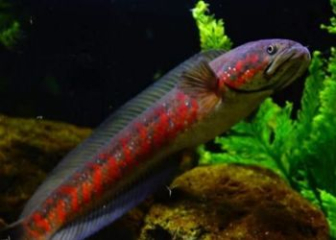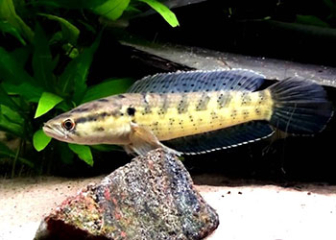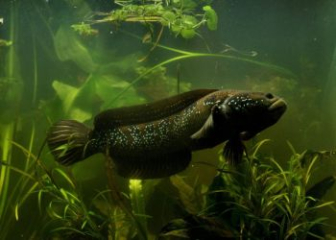Black snakehead fish - Detailed instructions on how to raise fish for high productivity
Blog | by
Black snakehead fish (Channa striata), also known as snakehead fish,... is a freshwater fish species very popular in Southeast Asia, has high nutritional value, is easy to raise, and is easy to adapt.
Black snakehead fish has the scientific name Channa striata, also known as cotton snakehead fish, banana fish,... This is a freshwater fish species common in Southeast Asia, not only has high nutritional value but also plays an important role in the ecosystem, culture and economy.
To better understand black snakehead fish , please read the detailed content shared by ornamental snakehead fish in the article below!
Snakehead fish information :
| Scientific name | Channa striata |
| Common name | Common snakehead fish, black snakehead fish |
| Surname | Channidae |
| Source | South Asia, Southeast Asia |
| Size | 30 - 90 cm, depending on farming conditions |
| Behavior | Active, highly adaptive hunter |
Origin of black snakehead fish
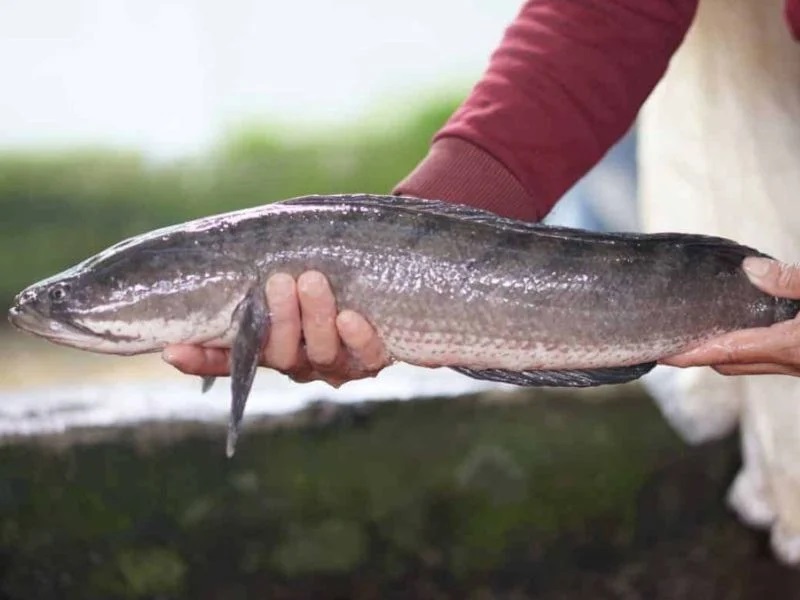
Black snakehead fish is a popular commercial fish in Vietnam.
Black snakehead fish, scientifically named Channa striata, is found in large river basins such as the Mekong, Ganges, and Chao Phraya rivers, widely distributed in South and Southeast Asia, specifically in the following countries:
- Vietnam, Malaysia, Indonesia
- India, Sri Lanka
- Nepal, Pakistan
- Myanmar, Thailand, Cambodia, Laos
In nature, this fish species mainly lives in rivers, streams, ponds, swamps, and can even live in slightly brackish water and oxygen-poor water.
The black snakehead fish is also a primitive native fish, one of the first fish species of the genus Channa to be domesticated for the purpose of providing a nutritious food source for humans.
Currently, in Vietnam, black snakehead fish is very popular, widely distributed throughout the country from the Mekong Delta to the Central region, the Central Highlands or the Northern Delta. In each region, it has a different name, the North is snakehead fish, the Central region is banana fish, the South is snakehead fish.
Black snakehead fish appearance
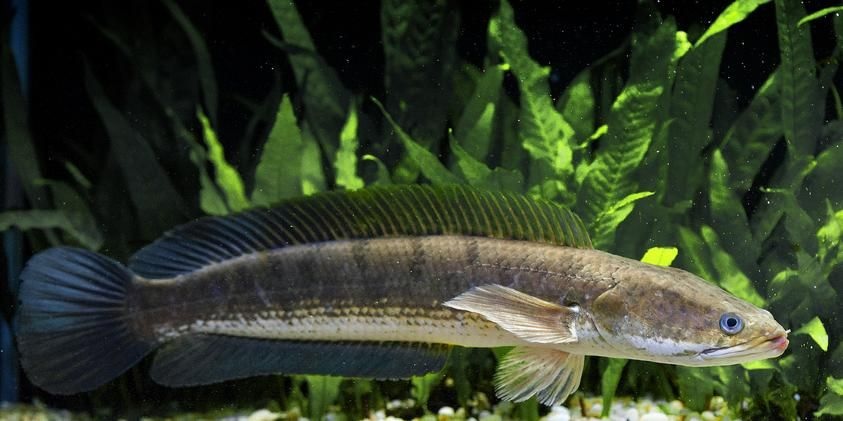
Impressive, wild appearance of snakehead fish ( Black snakehead fish)
Black snakehead fish is a fish with a characteristic appearance, easily recognizable with its wild appearance, specifically as follows:
- Shape: Elongated, tubular, round front body but gradually flattens towards the tail, very muscular, whole body has small scales except the head which has no scales
- Size : Maximum 60 - 90 cm in nature, and 30 - 50 cm in artificial breeding
- Weight : Can reach from 3 - 7 kg depending on living environment.
- Color : The body is mainly dark brown or grayish black, some individuals have a blue sheen on the back, the belly of the fish is opaque white or light grayish yellow, along the body there are horizontal stripes or dark spots.
- Head : Large, flat, wide mouth, slightly slanted upwards, lower jaw clearly protruding
- Eyes : Small, located on the top of the head, with flexible observation ability.
- Dorsal fin : anal fin: extended along the body, soft
- Caudal fin : Fan-shaped, helps the fish swim backwards or jump
- Pectoral and pelvic fins : Slightly small, not brightly colored.
- Scales : Fish scales are small, oily, close to the body, and have a natural layer of mucus.
Black snakehead fish behavior
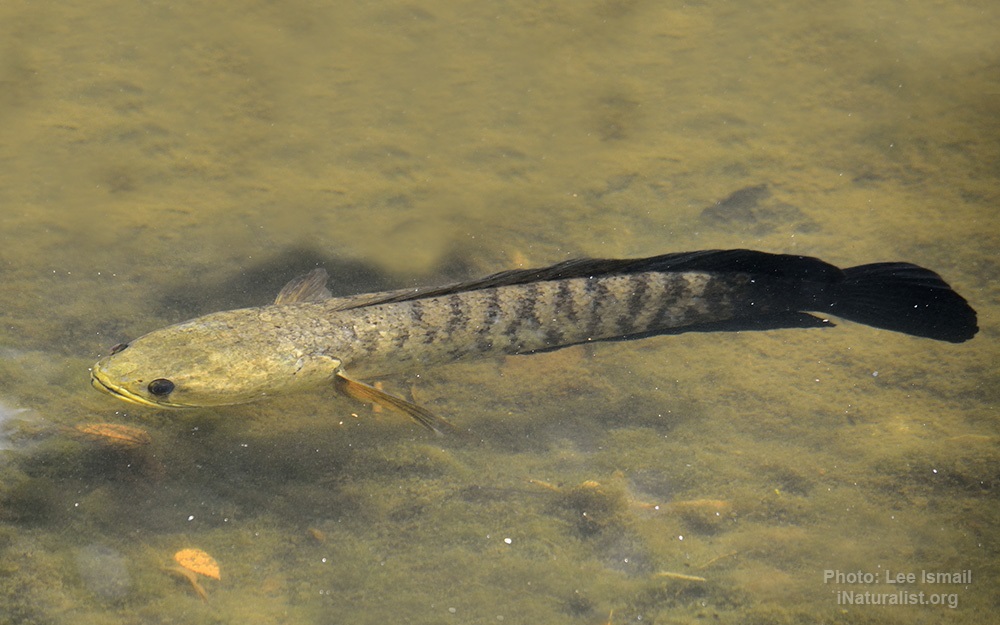
A black snakehead fish is swimming in the water.
Black snakehead fish is a species of fish with active hunting habits, the ability to live persistently, and high adaptability. Let's learn more about their special habits below.
Active hunting, high killer instinct
Black snakehead fish are carnivorous fish, they are also notorious killers that tend to hunt for themselves instead of waiting for prey to come. In the natural environment, they will search for prey, then lurk and wait, then suddenly attack with just one extremely fast and accurate "bite".
Ability to live long
Black snakehead fish is one of the most resilient freshwater fish species. Because they possess an accessory respiratory organ that allows them to breathe air outside of water, they can still live well in stagnant puddles, stagnant ponds, shallow ponds, dirty ditches and even "crawl" on land for quite a long distance to find a new home. Even when the dry season comes, they can hide under wet mud and wait for the water to rise.
For this reason, snakehead fish are often one of the least "risky" fish species when raised in ponds, lakes, or low-lying fields.
High adaptability to different living environments
Black snakehead fish can live well in many different environments, from still water to strong currents or from plains to midlands and mountains. Even if the environment changes suddenly in temperature and pH, they can still grow well. You can raise them in rice fields, earthen ponds, cages or cement tanks.
Quick reflexes, good defense
Black snakehead fish have very good defense habits, usually they will hide under mud, moss or aquatic bushes. When threatened, this fish will dive very deep or jump away at super speed, very difficult to catch with normal hands, plus the dark body color helps them camouflage naturally.
Simple reproduction, easy to breed
In the snakehead family (Channidae), the Black Snakehead is probably the easiest to breed and reproduce. They usually breed during the rainy season from April to August. The fish will lay floating eggs, after the eggs hatch, the father and mother together protect the young until they are able to be independent, so the survival rate of the young fish is very high.
Therefore, in captivity, if you maintain the parameters, temperature, pH, and water volume, you can completely let them reproduce naturally, thereby proactively replacing the offspring.
How to raise black snakehead fish to bring high economic efficiency
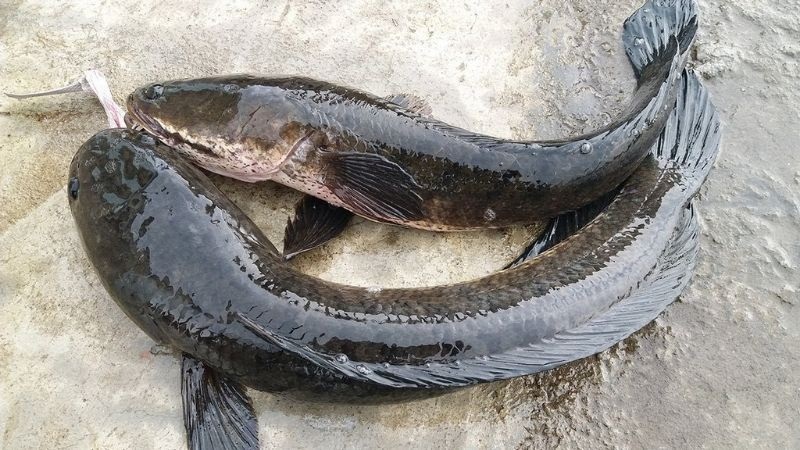
Black snakehead fish is easy to raise and brings high economic efficiency.
Black snakehead fish is a freshwater fish that plays an important role in our country's aquaculture industry. They have delicious meat, are easy to raise, have few diseases, and have good adaptability and reproduction. If you want to raise black snakehead fish effectively, with high productivity and low risk, please refer to the instructions shared below.
Choose the right farming model
First, to raise black snakehead fish effectively and productively, you need to choose a farming model suitable for the natural conditions where you live. You can refer to some of the following models:
- Traditional earthen ponds : Low cost, easy to manage, suitable for rural areas
- Cement tank, canvas tank : Easy to control, proactive water, suitable for industrial and mass farming.
- Farming in rafts and cages : Applicable to areas near rivers and lakes, taking advantage of natural water sources.
- Farming combined with rice fields : Making use of the area
If you are a beginner, I think you should choose to raise them in a tarpaulin pond or cement tank to easily control water quality and diseases.
Choose healthy fish
After choosing a farming model, you need to proceed to the step of selecting breeds, this is an important step that determines the quality and yield of fish, because healthy breeds will grow well and be easy to care for. When selecting breeds, you need to note the following:
- Choose fish from 1 - 2 months old with size 5 - 7 cm.
- Choose fish of the same size for easier care.
- Choose fish that swim well, are agile, and have no scratches...
- Choose domesticated breeds for easier care.
Pond preparation
If you choose the pond farming model, you need to prepare and treat the pond before releasing the fish, specifically as follows:
- Drain the bottom, add lime at a rate of 7 - 10 kg/100 m² to disinfect, kill pathogens in the pond, and balance pH.
- Dry the pond bottom for at least 1 week before adding clean water to the pond.
- Add duckweed and aquatic plants to create shelter for fish.
Balanced, reasonable diet
This is the key factor that determines fish productivity, because only with a reasonable diet will fish grow well and have less disease. Note the following:
- Stage 1 - 2 first months Should feed fish with minced shrimp, fish flakes,...
- Stage after 2 months Train fish to eat floating pellets with high protein content of over 40%.
- Feed the fish twice a day.
- Add vitamins and digestive enzymes to help fish increase resistance.
Water quality control
The next important thing in raising black snakehead fish is that you need to control the water quality, pay attention to the following parameters:
- Ideal pH : 6.5 - 7.5
- Temperature : 26 - 32 degrees C
- Dissolved oxygen : Over 3 mg/L.
- Use : Biological products to limit toxic gases and excessive algae growth.
Effective prevention and treatment of fish diseases
Black snakehead fish have high adaptability and are less susceptible to diseases than some other types of fish, however they can still get some diseases such as fungus, bleeding, parasites,... specifically as follows:
| Disease name | Symptom | How to handle |
| Skin fungus, ulcers |
Fish with skin scratches and scales peeling off Ulcers appear on the skin and fins. lethargic fish |
Bathe fish with diluted salt water Use mild antibiotics for fish |
| Fish bleeding, bloating |
Abnormally swollen fish belly Fish swim head up Fish stop eating |
Use of antibacterial and antiparasitic drugs Stop feeding fish for 2-3 days Good control of food quality |
| Parasite |
Fish often rub themselves against rocks and driftwood, causing scratches on their bodies. Fish swim jerkily, or jump to the surface of the water. |
Add vitamin C to fish food to increase resistance Use of antiparasitic drugs in fish |
Nutritional value of black snakehead fish
Black snakehead fish is a popular freshwater fish in Vietnamese cuisine because it contains high nutritional content and medicinal properties, very good for children, the elderly, and dieters. Specifically as follows:
Nutritional composition in 100g of black snakehead fish meat :
| Ingredient | Estimated content |
| Energy | 90 - 100 kcal |
| Protein | 18 - 22g |
| Fat | Very low 0.5 - 1.5g |
| Calcium | 15 - 20 mg |
| Iron | 1 - 1.5 mg |
Recorded health benefits :
- Wound healing is quick thanks to its high albumin content, so it is very suitable for people after surgery and people with physical weakness.
- Has anti-inflammatory properties and increases resistance.
- Aids digestion, good for the heart and face due to low fat content, high potassium content helps reduce pressure on the liver, kidneys, and heart.
- Good for people with diabetes and high blood pressure.
Some dishes made from black snakehead fish :
- Grilled black snakehead fish - a specialty of the West
- Steamed snakehead fish with gourd
- Braised snakehead fish with pepper
- Sour snakehead fish soup
- Snakehead fish porridge
- Crispy fried snakehead fish
- Snakehead fish cooked with pickled bamboo shoots
- Snakehead fish salad (The fish must be very fresh)
Black snakehead fish price list
Currently, black snakehead fish are commonly sold in the Vietnamese market, including commercial fish and fingerlings, their specific prices are as follows:
Price list of commercial black snakehead fish:
| Form | Fish size | Reference price (VND/kg) |
| Retail | 1 - 1.5 kg/head | 120,000 - 150,000 |
| Retail | 0.8 - 1 kg/head | 80,000 - 120,000 |
| Wholesale | Over 20 kg | 70,000 |
Price list of black snakehead fish breed:
| Fish size | Reference price (VND/piece) | Fish farm |
| 3 - 4 cm | 1,000 - 1,300 | Nam Dac Camp |
| 3 - 4 cm | 1,500 | Tan Dung Camp |
Beautiful black snakehead fish pictures
Please enjoy some beautiful pictures of black snakehead fish that we have collected below!
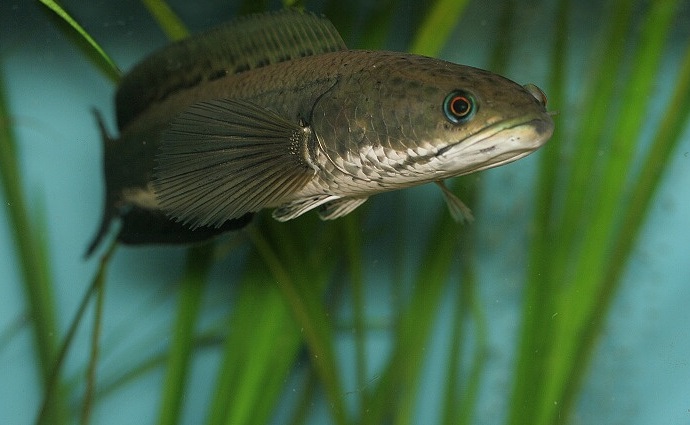
A black snakehead fish is raised in an aquarium.
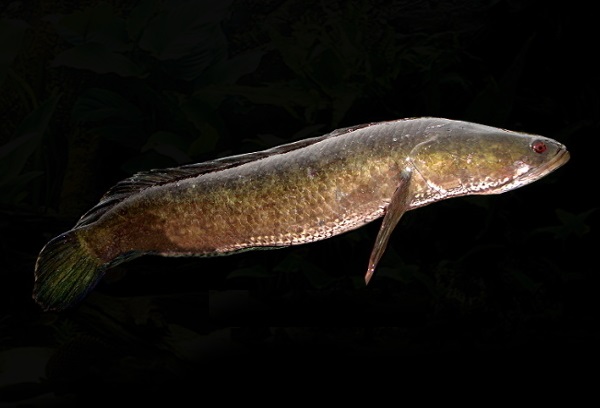
Impressive appearance of a black snakehead fish .
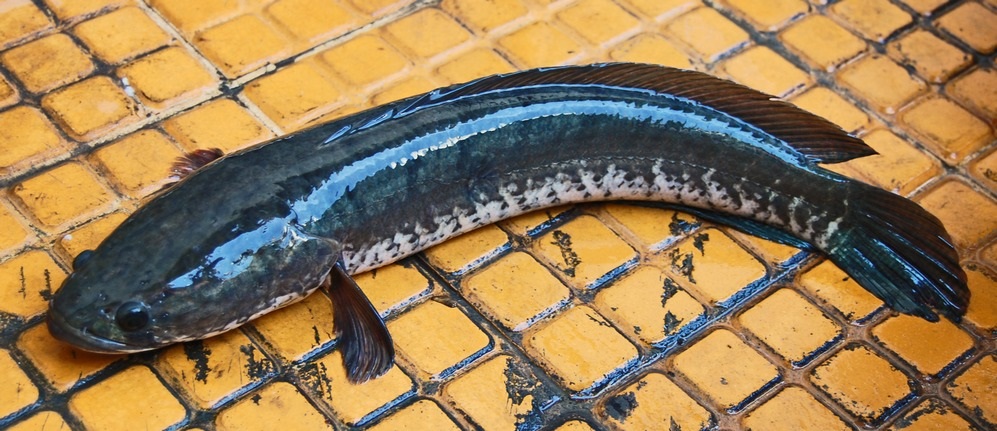
A large snakehead fish looks muscular and solid.
So through the article on snakehead.info has shared details about black snakehead fish , hope you will understand and know how to raise them effectively, achieving high productivity. If you want a stable source of income, I believe that starting with raising black snakehead fish is not a bad choice.
Explore more snakehead fish species in our Blog section to learn more about the rich world of the Channidae family!
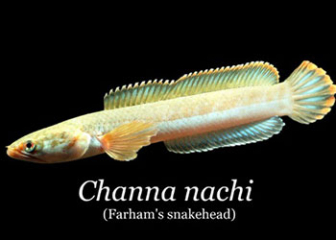
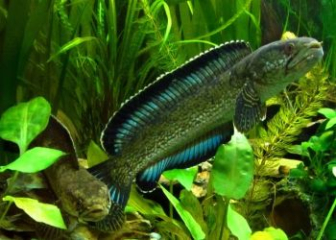

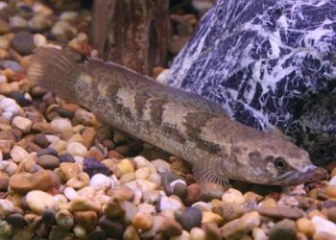
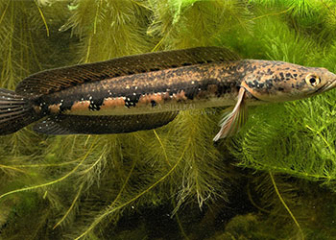

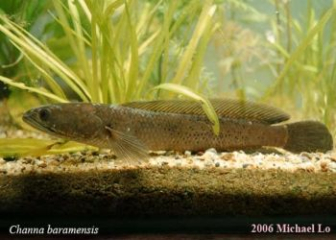
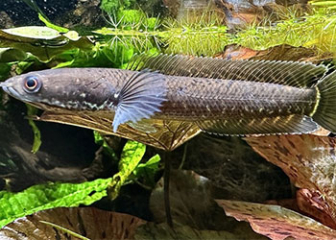
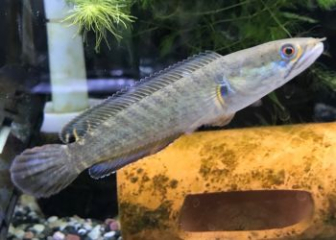
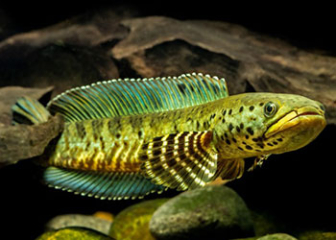
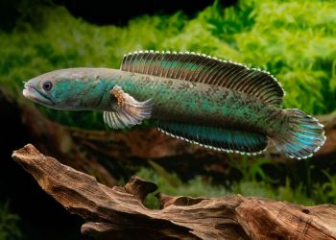

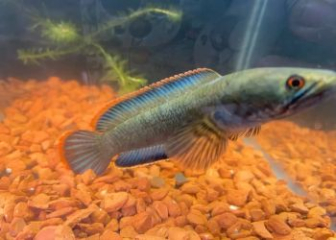
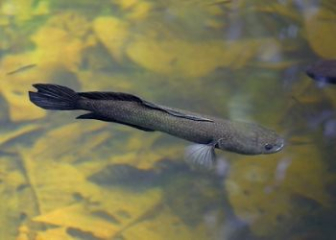
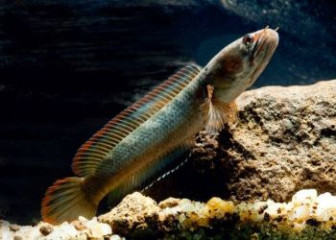
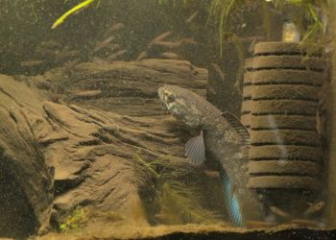
_350x250.jpg)
